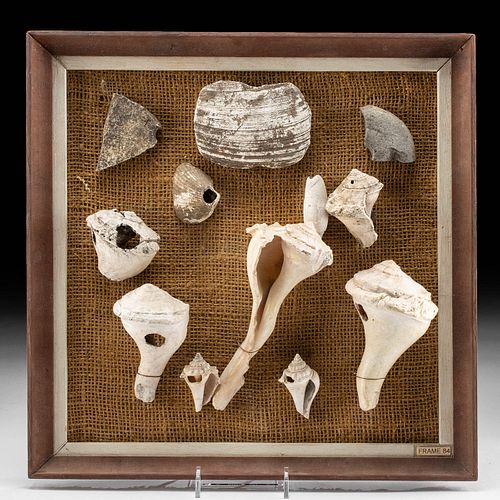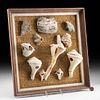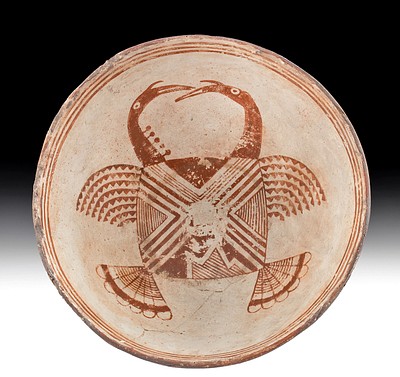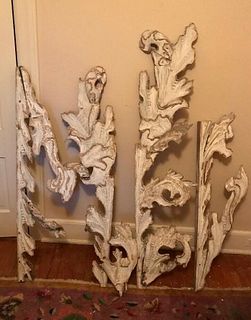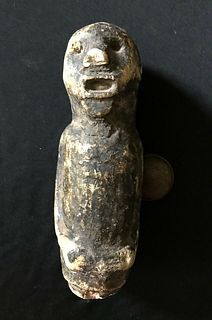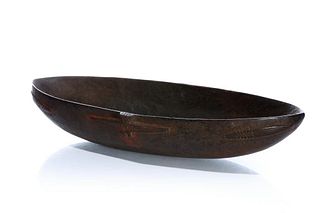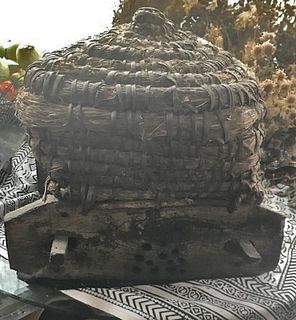12 Native American Calusa Shell & Stone Artifacts
Lot 94
About Seller
Artemis Gallery
686 S Taylor Ave, Ste 106
Louisville, CO 80027
United States
Selling antiquities, ancient and ethnographic art online since 1993, Artemis Gallery specializes in Classical Antiquities (Egyptian, Greek, Roman, Near Eastern), Asian, Pre-Columbian, African / Tribal / Oceanographic art. Our extensive inventory includes pottery, stone, metal, wood, glass and textil...Read more
Categories
Estimate:
$800 - $1,200
Absentee vs Live bid
Two ways to bid:
- Leave a max absentee bid and the platform will bid on your behalf up to your maximum bid during the live auction.
- Bid live during the auction and your bids will be submitted real-time to the auctioneer.
Bid Increments
| Price | Bid Increment |
|---|---|
| $0 | $25 |
| $300 | $50 |
| $1,000 | $100 |
| $2,000 | $250 |
| $5,000 | $500 |
| $10,000 | $1,000 |
| $20,000 | $2,500 |
| $50,000 | $5,000 |
| $100,000 | $10,000 |
| $200,000 | $20,000 |
About Auction
By Artemis Gallery
Apr 22, 2021
Set Reminder
2021-04-22 12:00:00
2021-04-22 12:00:00
America/New_York
Bidsquare
Bidsquare : Art & Artifacts of North America
https://www.bidsquare.com/auctions/artemis-gallery/art-artifacts-of-north-america-6851
Join us for a special auction featuring an important collection of Native American points and artifacts from Charlie Meyers, famed illustrator for Greg Perino. Artemis Gallery info@artemisgallery.com
Join us for a special auction featuring an important collection of Native American points and artifacts from Charlie Meyers, famed illustrator for Greg Perino. Artemis Gallery info@artemisgallery.com
- Lot Description
Native American, Southeastern United States, Florida, Marco Island, Calusa/Glades culture, ca. 500 CE to 1750 CE. An interesting collection of 10 shells and 2 stone tools from a coastal Native American tribe. The 7 welk shells have drilled circular holes on one side for suspension or hafting. The edge of the longest shell has been shaped and sharpened to create a cutting tool. Welk shells may have been mounted on handles to serve as cutting or scraping tools. The small clam shell with the perforation was probably used as a net weight. The piece of stone may have once had a hole through its center in order to serve as an anchor or weight. The Florida coast was conducive to fishing with rich estuaries, bays, and marshes. It is likely that 90% of the indigenous people's diets consisted of fish and shellfish. Tools, jewelry, beads, and even mounds, were created from the leftover shells. Size of frame: 13.24" L x 1.5" W x 13.25" H (33.6 cm x 3.8 cm x 33.7 cm) largest shell: 6.5" L x 2.5" W (16.5 cm x 6.4 cm)
Provenance: private Fayetteville, Arkansas, USA collection; ex-Charles (Charlie) Meyer collection, noted collector and famed illustrator for Greg Perino, famed authenticator and writer
All items legal to buy/sell under U.S. Statute covering cultural patrimony Code 2600, CHAPTER 14, and are guaranteed to be as described or your money back.
A Certificate of Authenticity will accompany all winning bids.
We ship worldwide and handle all shipping in-house for your convenience.
#163465Chips and losses to shells as shown. Light mineral and earthen encrustations. Mounted on a burlap cloth within a wooden frame.Condition
- Shipping Info
-
All shipping is handled in-house for your convenience. Your invoice from Artemis Gallery will include shipping calculation instructions. If in doubt, please inquire BEFORE bidding for estimated shipping costs for individual items.
-
- Buyer's Premium



 EUR
EUR CAD
CAD AUD
AUD GBP
GBP MXN
MXN HKD
HKD CNY
CNY MYR
MYR SEK
SEK SGD
SGD CHF
CHF THB
THB